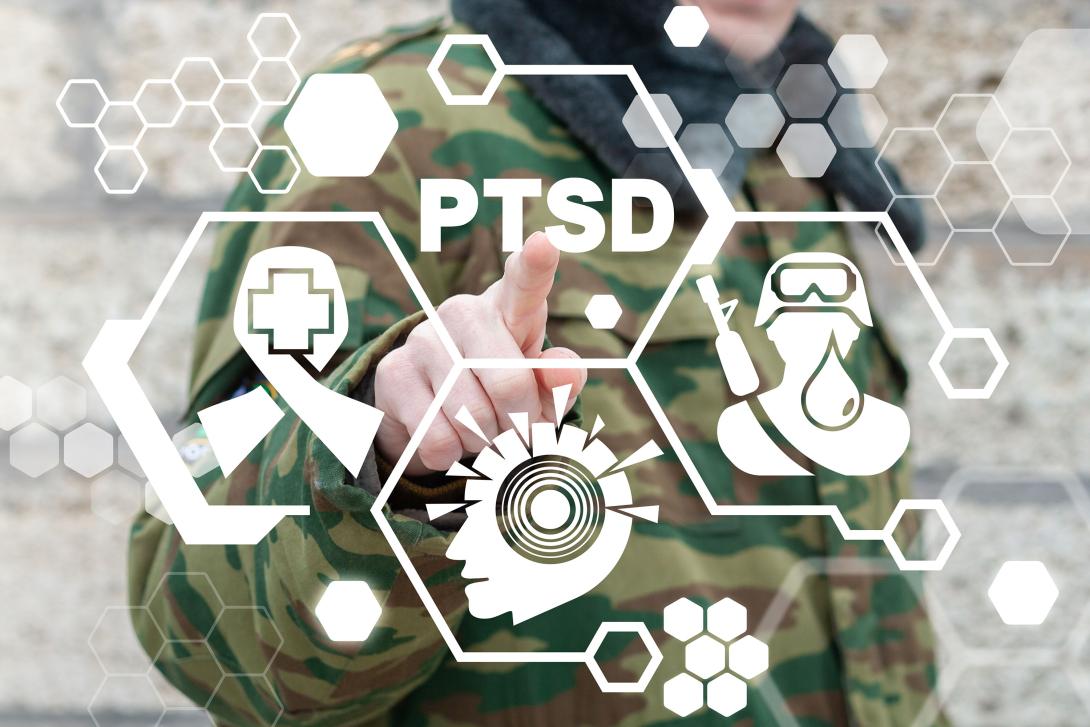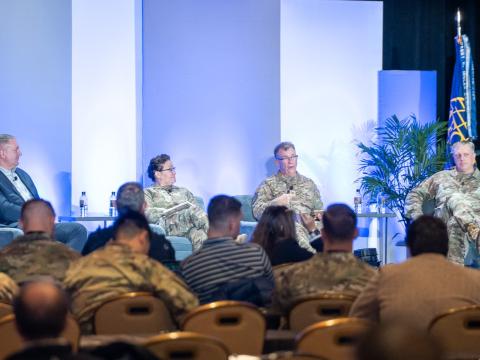President's Commentary: Protecting Our Protectors
We often hear that people are our greatest resource, and no one has ever made a truer statement.
Those who protect us need consistent, persistent and proven protection. Whether we’re talking about soldiers, sailors, airmen, Marines, Guardians, government civilians, contractors, first responders, cyber workers or intelligence personnel, the stresses, dangers and injuries they face require dedicated, compassionate and, sometimes, life-long care.
The U.S. Defense Department requested $55.8 billion in the 2023 budget for the Military Health System, which delivers certain health entitlements to military personnel, retirees and their families. It provides health care to 9.6 million beneficiaries in Defense Department hospitals and clinics and through civilian health care providers participating in TRICARE, a department-administered health insurance-like program.
Over the years, the military also has invested in a wide array of technologies to help monitor and protect the health of our nation’s warriors. Improved body armor is a common example. And wearable sensors have gained attention for their ability to monitor physical indicators, such as heart rates, stress levels and fatigue, as well as outside dangers, including toxic chemicals. Terry Rauch, then-acting deputy assistant secretary of defense for health readiness policy and oversight, told the Senate Armed Services Committee’s subcommittee on personnel in 2022 that wearable technology may allow close monitoring of an individual’s precise exposure to toxins in a way that’s just not possible today.
Other examples include heavy investments in robots to perform potentially deadly missions on the battlefield; exoskeletons for carrying injury-causing and fatigue-inducing heavy loads; and even human-like holograms with artificial intelligence to act as counselors for soldiers suffering from post-traumatic stress disorder (PTSD).
Not all technologies will ultimately prove useful and not every dollar will be well spent, but the point is that we continuously seek solutions for protecting our people, who truly are our most essential resource. No matter how much we invest, how many technologies we develop or how many solutions we seek, it can never be enough or as much as our warriors deserve.
Despite our efforts, we remain heartbreakingly unable to stem the tide of depression, PTSD and work-related stress that lead to a heartbreaking number of suicides for our warriors. It is tragic that the Defense Department even needs to publish an annual report on military suicides, but it does. The department reported 519 suicides in 2021 and 492 in 2022.
Cybersecurity professionals, meanwhile, experience much the same stress as first responders, according to a report published last year by the AFCEA International Cyber Committee. “Cybersecurity professionals, especially on-net defenders, experience striking similarities to stress-inducing factors as do first responders: rapid decision-making in an imperfect data set, danger to business and the requirement to work long hours. Discussions at cybersecurity conferences dating to 2018 noted a significant rise in burnout, depression and suicide in the community. However, no official studies exist to date,” the report explained.
This is an area where we continue to learn. Suicide is a complex issue with myriad causes and requiring diverse solutions. Sure, technology plays a part. So does legislation, such as the Brandon Act, which was named after U.S. Navy Petty Officer 3rd Class Brandon Caserta. He died by suicide in 2018. The act, which became law in 2021, is designed to reduce the stigma of mental health and empower service members to get the help they need.
As individuals, as a government and as a society, we have made significant progress in lessening the mental health stigma. A greater degree of understanding, compassion and altruism along with easy access to professional care may be our most potent “weapons” in this particular battle.
If you know of anyone in distress, don’t wait for someone else to act. Call 911 or 988, the suicide prevention hotline.
And to those warriors who suffer, know that you are not alone. Reach out. Seek help. We are a nation eager to answer your call, as you have answered ours.





Comments